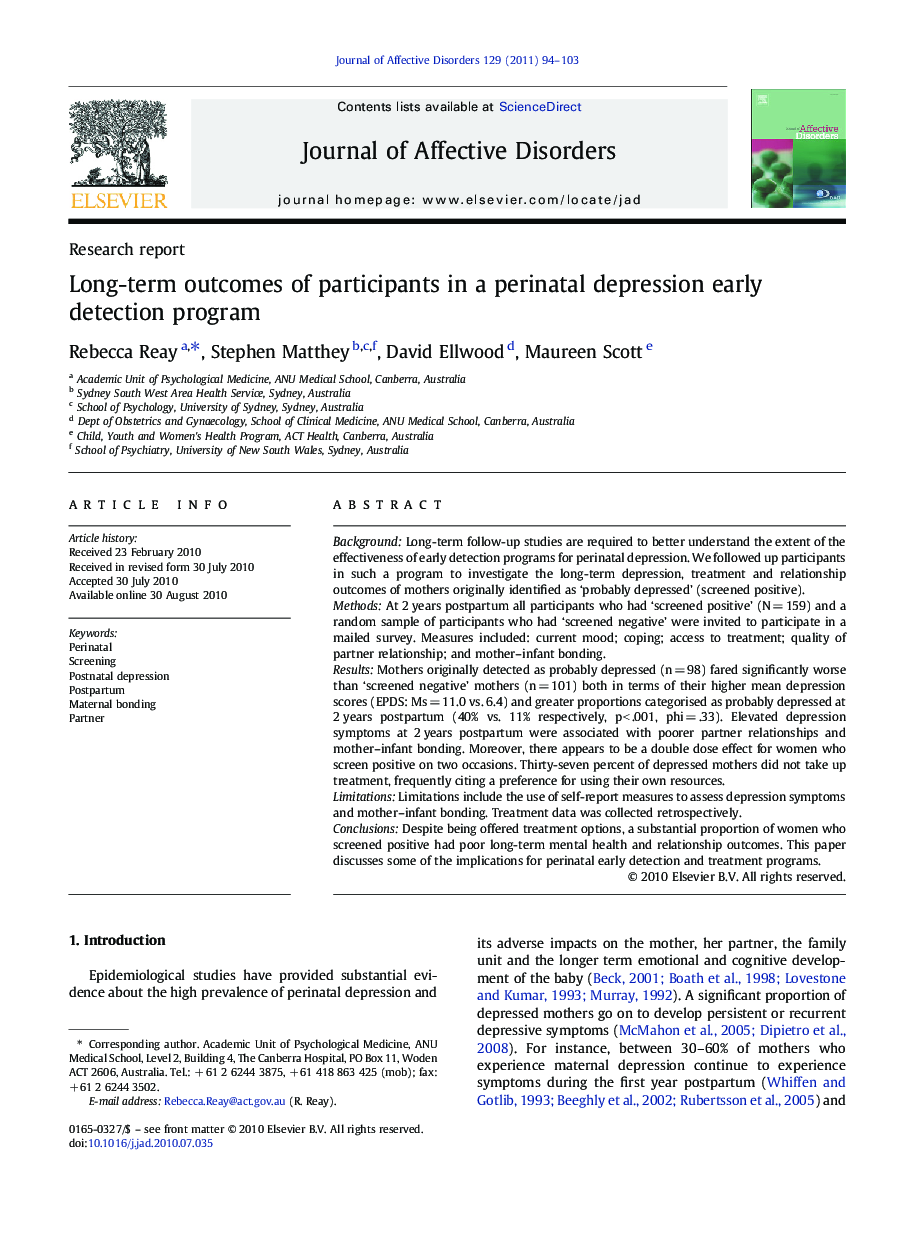| Article ID | Journal | Published Year | Pages | File Type |
|---|---|---|---|---|
| 4186512 | Journal of Affective Disorders | 2011 | 10 Pages |
BackgroundLong-term follow-up studies are required to better understand the extent of the effectiveness of early detection programs for perinatal depression. We followed up participants in such a program to investigate the long-term depression, treatment and relationship outcomes of mothers originally identified as ‘probably depressed’ (screened positive).MethodsAt 2 years postpartum all participants who had ‘screened positive’ (N = 159) and a random sample of participants who had ‘screened negative’ were invited to participate in a mailed survey. Measures included: current mood; coping; access to treatment; quality of partner relationship; and mother–infant bonding.ResultsMothers originally detected as probably depressed (n = 98) fared significantly worse than ‘screened negative’ mothers (n = 101) both in terms of their higher mean depression scores (EPDS: Ms = 11.0 vs. 6.4) and greater proportions categorised as probably depressed at 2 years postpartum (40% vs. 11% respectively, p < .001, phi = .33). Elevated depression symptoms at 2 years postpartum were associated with poorer partner relationships and mother–infant bonding. Moreover, there appears to be a double dose effect for women who screen positive on two occasions. Thirty-seven percent of depressed mothers did not take up treatment, frequently citing a preference for using their own resources.LimitationsLimitations include the use of self-report measures to assess depression symptoms and mother–infant bonding. Treatment data was collected retrospectively.ConclusionsDespite being offered treatment options, a substantial proportion of women who screened positive had poor long-term mental health and relationship outcomes. This paper discusses some of the implications for perinatal early detection and treatment programs.
